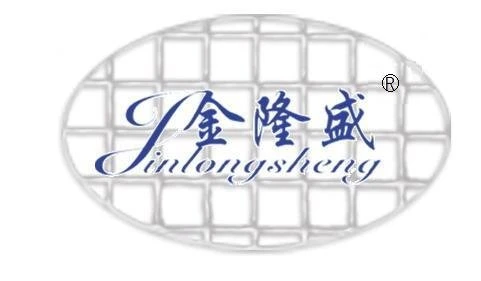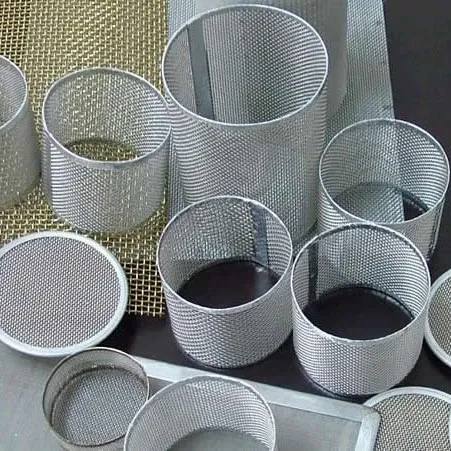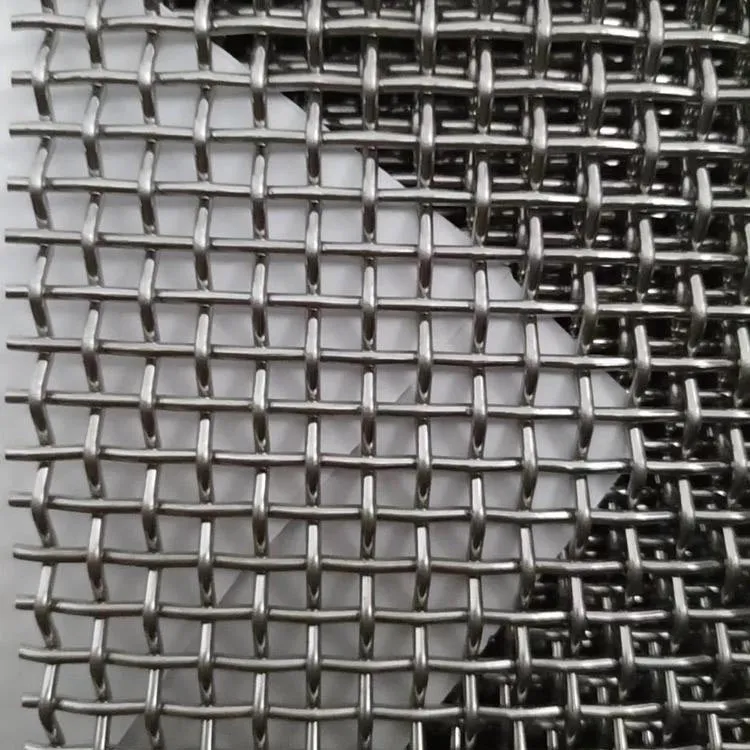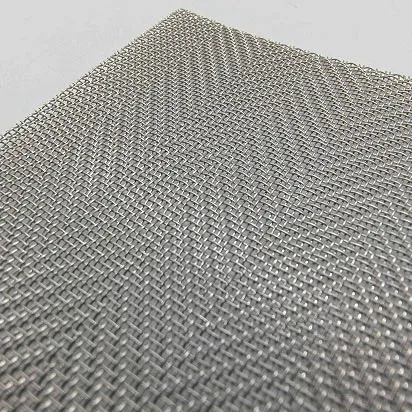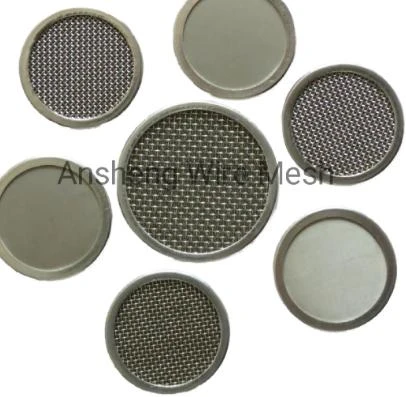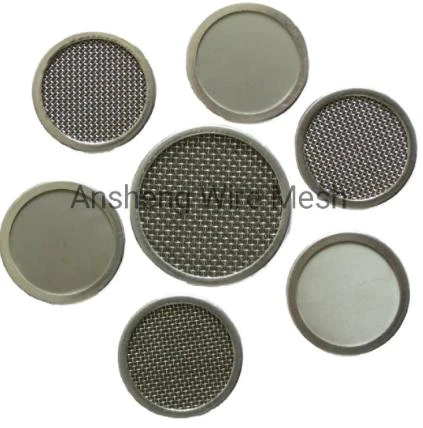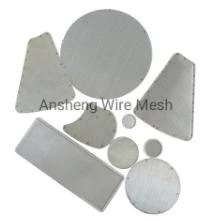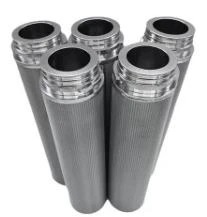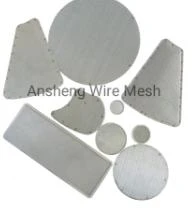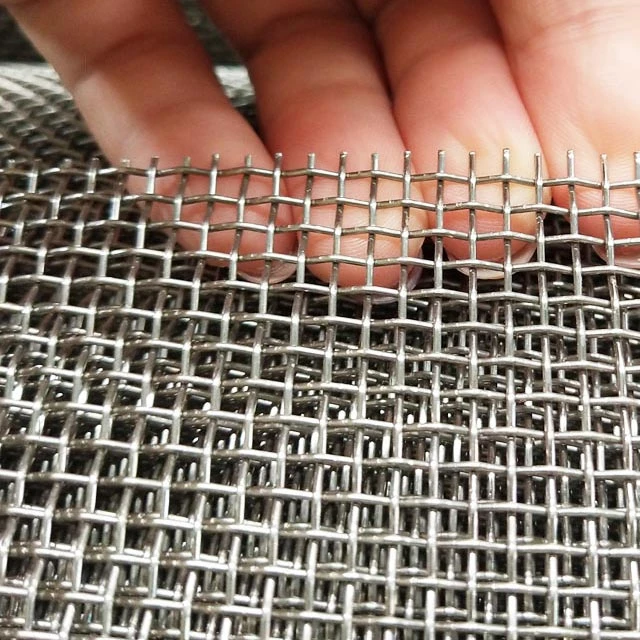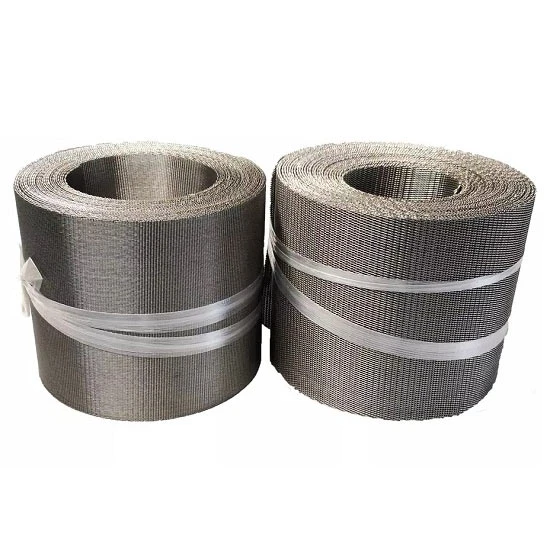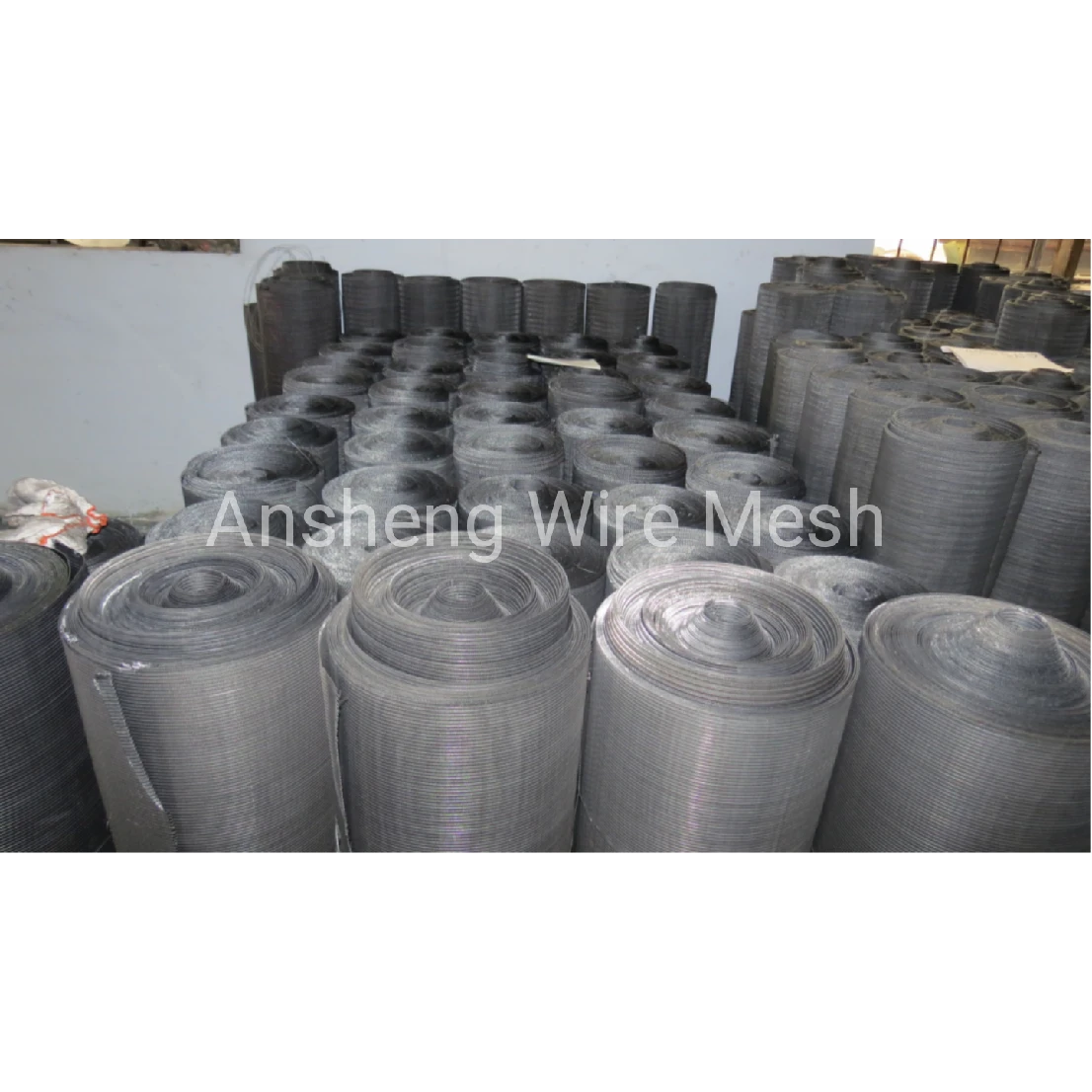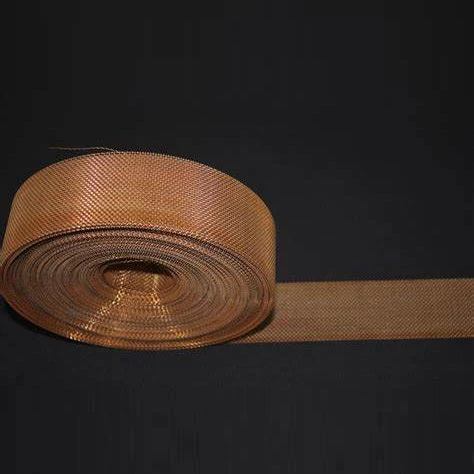Introduction to Twill Weave Mesh
In industrial filtration and separation, the choice of wire mesh directly impacts system efficiency, longevity, and overall operational costs. Among the various weaving patterns, twill weave mesh stands out for its exceptional strength, fine filtration capabilities, and adaptability to demanding environments. This specialized weaving technique allows for the creation of a mesh with a tighter, stronger fabric, making it ideal for applications requiring superior load-bearing capacity and precise particle retention. Often fabricated from high-grade stainless steel, this mesh type offers robust performance against corrosion, high temperatures, and abrasive media, distinguishing it from simpler plain weave counterparts.
Its unique construction, where each weft wire passes alternately over two warp wires and then under two warp wires, results in a diagonal pattern and the ability to accommodate heavier wires in a smaller mesh count, leading to a denser and more durable fabric. This characteristic positions twill weave mesh as a critical component across a spectrum of B2B applications, from petrochemical refining to pharmaceutical processing, where unwavering performance is paramount.
Industry Trends Driving Twill Weave Mesh Adoption
The industrial landscape is constantly evolving, with several key trends driving the increased demand for high-performance filtration media like twill weave mesh. Firstly, there's a growing emphasis on environmental protection and stricter regulatory compliance, particularly concerning effluent discharge and air emissions. This necessitates finer and more efficient filtration solutions capable of capturing even micron-sized particles, a task where the tight aperture control of twill weave wire mesh excels.
Secondly, the push for energy efficiency and resource optimization in industries such as petrochemicals and metallurgy demands filters that can withstand higher operating pressures and temperatures without compromising integrity or performance. The inherent strength and stability of twill weave mesh, especially when manufactured from alloys like Stainless Steel 316L, make it a preferred choice for such rigorous conditions, contributing to longer operational cycles and reduced maintenance downtime.
Furthermore, the acceleration of advanced manufacturing processes and the development of new materials in sectors like aerospace and pharmaceuticals require specialized separation techniques. These industries often deal with delicate or high-value substances, where precise and contamination-free filtration is non-negotiable. The robust and reliable nature of stainless steel twill mesh positions it as a go-to solution for these intricate and high-stakes applications, underpinning its growing market share in specialized filtration markets globally.
Understanding the Manufacturing Process of Twill Weave Mesh
The production of high-quality twill weave wire mesh is a sophisticated process that begins with meticulous material selection and culminates in rigorous quality assurance. The goal is to create a durable, precise, and reliable product that meets stringent industrial demands.
1. Material Selection
The primary material for our mesh is high-grade Stainless Steel, typically AISI 304, 316, or 316L. These alloys are chosen for their superior corrosion resistance, high-temperature strength, and excellent mechanical properties. AISI 304 offers good general corrosion resistance, while 316 and 316L (low carbon) provide enhanced resistance to pitting and crevice corrosion, making them suitable for aggressive chemical environments. The wire diameter is precisely controlled to ensure uniformity, which is critical for consistent mesh aperture and strength.
2. Precision Weaving
The core of the manufacturing process involves advanced weaving looms. Unlike plain weave where wires cross over and under one another individually, twill weave mesh employs a pattern where each weft (filler) wire passes alternately over two warp (shute) wires and then under two warp wires. This distinctive interlacing creates a stronger, denser, and more stable fabric, allowing for the use of heavier wires relative to the aperture size. This technique results in smaller mesh openings and a smoother surface, which is advantageous for fine filtration. The looms are equipped with precise tension control systems to ensure uniformity across the entire mesh roll, minimizing variations in aperture and maintaining structural integrity.
3. Post-Weaving Treatments
After weaving, the mesh undergoes several crucial post-treatment processes. These may include cleaning to remove lubricants and contaminants, annealing to relieve internal stresses and improve ductility, and calendering (rolling) to flatten the mesh and further stabilize its structure, enhancing its filtration precision. These treatments are essential for optimizing the mechanical properties and ensuring the chemical inertness of the finished product.
4. Quality Control & Testing Standards
Quality is paramount. Every batch of twill weave wire mesh undergoes rigorous inspection and testing. This includes visual inspections for weave defects, precise measurement of mesh count and wire diameter using optical comparators, and aperture size verification. Mechanical tests for tensile strength and elongation are performed to ensure the mesh meets specified load-bearing capacities. Our products adhere to international standards such as ISO 9001 for quality management, and product-specific standards like ASTM E2016 for industrial woven wire cloth.
5. Service Life & Target Industries
The expected service life of our twill weave mesh can extend for many years, often exceeding a decade, depending on the application and operating conditions. Its exceptional durability and resistance to wear are key advantages. We primarily serve target industries such as:
- Petrochemical: For catalyst retention, particulate filtration in refining processes. Advantages: superior corrosion resistance, high-pressure tolerance, leading to reduced downtime and energy saving by maintaining optimal flow.
- Metallurgy & Mining: Slurry dewatering, particle sizing, and high-temperature gas filtration. Advantages: robust construction withstands abrasive media and high temperatures, ensuring reliable operation.
- Water Supply & Drainage: Pre-filtration, sediment removal, and treatment plant components. Advantages: excellent corrosion resistance in aquatic environments, efficient particle removal for cleaner water.
- Pharmaceutical & Food Processing: Precision filtration of ingredients, sterilization processes. Advantages: inert stainless steel prevents contamination, precise pore size ensures product purity.
By emphasizing these materials, processes, and adherence to testing standards, we ensure that our twill mesh products deliver consistent performance and reliability in the most demanding industrial environments.
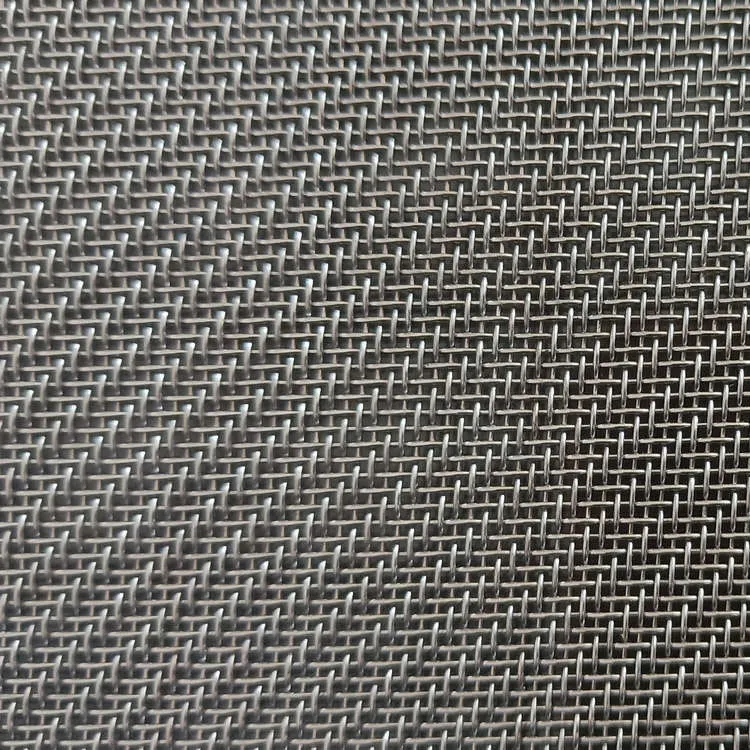
Technical Specifications and Performance Parameters
The effectiveness of any filtration medium hinges on its precise technical specifications. Twill weave wire mesh is characterized by several critical parameters that dictate its performance in specific applications. Understanding these metrics is crucial for B2B decision-makers to select the optimal product.
Weave Structure
The defining characteristic of twill weave mesh is its weave pattern. Unlike the plain weave where wires interlace one-over-one, the twill weave involves each weft wire passing alternately over two warp wires and then under two warp wires. This creates a diagonal pattern, allowing for thicker wires to be used for a given mesh count compared to a plain weave. This results in a denser, stronger fabric with smaller, more uniform apertures and higher filtration efficiency, often down to extremely fine micron ratings.
Key Parameters
- Mesh Count: The number of openings per linear inch, indicating the fineness of the mesh. Higher mesh counts correspond to finer filtration.
- Wire Diameter: The thickness of the individual wires, directly influencing the mesh's strength, open area, and flow rate. Heavier wires mean greater strength and durability.
- Aperture Size (Micron Rating): The clear opening between adjacent wires, measured in microns. This is the primary determinant of the mesh's filtration capability, specifying the smallest particle size it can retain.
- Open Area: The percentage of open space in the mesh, impacting flow rate and pressure drop. While twill weave has a smaller open area than plain weave for similar mesh counts, its strength and fine filtration often compensate.
- Material: Typically Stainless Steel (SS304, SS316, SS316L) for corrosion resistance, high temperature, and chemical compatibility. Other alloys like Monel, Inconel, or Hastelloy are available for highly specialized, extreme conditions.
Below is a table illustrating typical specifications for Stainless Steel Twill Weave Wire Mesh, providing a reference for standard product offerings. These parameters can be customized to meet specific application requirements.
| Mesh Count (per inch) | Wire Diameter (mm) | Aperture Size (Microns) | Open Area (%) | Material |
|---|---|---|---|---|
| 10 | 0.50 | 2000 | 40.0 | SS304/SS316 |
| 20 | 0.35 | 725 | 35.0 | SS304/SS316 |
| 40 | 0.25 | 375 | 30.0 | SS316/SS316L |
| 80 | 0.18 | 150 | 28.0 | SS316/SS316L |
| 150 | 0.10 | 60 | 25.0 | SS316L |
| 200 | 0.07 | 40 | 23.0 | SS316L |
| 325 | 0.045 | 25 | 20.0 | SS316L |
These specifications highlight the versatility and precision that twill mesh offers, making it adaptable to a wide array of demanding filtration and separation tasks.
Core Technical Advantages of Twill Weave Mesh
The distinctive weave pattern of twill weave mesh confers a suite of technical advantages that are highly valued in industrial applications:
- Enhanced Strength and Stability: The over-two, under-two interlacing of wires creates a robust and tight fabric. This allows for the use of relatively heavier wires compared to plain weave for a given mesh count, significantly increasing the mesh's mechanical strength and resistance to deformation under pressure. This structural integrity is critical in high-flow or high-pressure filtration systems, preventing blow-outs or material fatigue.
- Superior Filtration Precision: The tight weave and ability to use finer wires in close proximity result in very small and uniform aperture sizes. This translates to exceptional filtration precision, enabling the retention of extremely fine particles, often down to sub-micron levels. This precision is vital for applications requiring high purity, such as in pharmaceutical manufacturing or fine chemical processing.
- High Dirt Holding Capacity: The unique crimping of wires in twill weave mesh creates a tortuous path for fluid flow, which can enhance its dirt-holding capacity. This means filters made from this mesh can capture more particulates before requiring backwashing or replacement, leading to longer service intervals and reduced operational costs.
- Corrosion and Chemical Resistance: When manufactured from high-grade stainless steels (SS304, SS316, SS316L), the mesh exhibits outstanding resistance to a wide range of corrosive media, including acids, alkalis, and chlorides. This makes it suitable for use in harsh chemical environments, extending the lifespan of filtration components.
- Temperature Resilience: Stainless steel twill mesh maintains its structural integrity and filtration characteristics across a broad spectrum of temperatures, from cryogenic conditions to extremely high heat, making it invaluable in processes subject to thermal fluctuations.
- Formability and Fabricability: Despite its strength, twill weave wire mesh can be readily formed, cut, welded, and fabricated into various filter elements, such as filter discs, cylinders, or specialized screens, allowing for custom solutions to fit diverse equipment designs.
These combined advantages underscore why twill weave mesh remains a preferred material for engineers and procurement specialists seeking robust, precise, and reliable filtration solutions for their critical industrial operations.
Diverse Application Scenarios and Case Studies
The versatility and superior performance of twill weave mesh make it indispensable across a multitude of industries. Its ability to combine strength with fine filtration allows it to address critical challenges in diverse application scenarios.
Petrochemical and Chemical Industry
In refineries and chemical plants, twill weave wire mesh is crucial for catalyst support and retention, as well as for filtering aggressive chemicals, acids, and bases. Its corrosion resistance (especially SS316L) and high-temperature tolerance ensure reliability in reactor beds and separation columns. For example, a major chemical producer utilized our 200-mesh SS316L twill mesh in their fine chemical synthesis process to remove residual catalyst particles, achieving product purity levels exceeding 99.9%, a critical factor for downstream processes and product quality.
Mining and Metallurgy
Here, twill mesh is employed for ore screening, slurry dewatering, and filtering process water. Its robust construction withstands abrasive slurries and heavy loads, providing long service life. In a recent project for a copper mining operation, customized panels of 80-mesh twill weave wire mesh were integrated into vibrating screens for dewatering tailings. Customer feedback indicated a 30% reduction in screen replacement frequency compared to previous plain weave solutions, directly translating to significant operational savings and improved throughput.
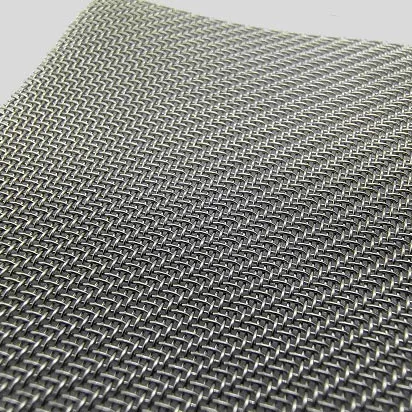
Water Treatment and Environmental Engineering
From industrial wastewater treatment to municipal potable water filtration, twill weave mesh serves as pre-filters, strainers, and components in dewatering equipment. Its precise filtration capabilities help remove suspended solids, ensuring cleaner water output. For instance, an urban water treatment facility deployed custom 150-mesh filter cylinders for a tertiary filtration stage, successfully reducing turbidity and meeting stricter discharge regulations, showcasing its efficacy in environmental compliance.
Pharmaceutical and Food & Beverage
Precision and hygiene are paramount. Twill mesh is used for filtering pharmaceutical ingredients, ensuring product purity, and in food processing for separating solids from liquids, such as in sugar refining or juice clarification. Its inert stainless steel composition prevents contamination, making it compliant with strict health and safety standards like FDA. A leading pharmaceutical company integrated our 325-mesh twill weave mesh into their API (Active Pharmaceutical Ingredient) production line, which proved instrumental in achieving a consistent particle size distribution for their final product, vital for controlled drug release.
These case studies underscore the practical benefits and reliability of twill weave mesh in demanding industrial contexts, highlighting its contribution to efficiency, cost savings, and product quality.
Selecting Your Supplier: A Vendor Comparison Guide
Choosing the right supplier for twill weave mesh is as critical as selecting the mesh itself. A reliable vendor not only provides a quality product but also offers expertise, support, and consistency. When evaluating potential suppliers, consider the following key criteria:
Key Vendor Selection Criteria:
- Quality Assurance & Certifications: Does the vendor adhere to international quality standards (e.g., ISO 9001)? Are their products tested to ASTM, DIN, or other relevant industry specifications? Look for verifiable certifications and robust internal QC processes.
- Technical Expertise & Customization: Can the vendor offer technical consultation to help you choose the right twill weave wire mesh for your specific application? Do they have the capability to provide customized solutions (materials, dimensions, fabrication)?
- Experience & Reputation: How many years has the vendor been in business? Do they have a proven track record with clients in your industry? Check for testimonials, case studies, and industry references.
- Production Capability & Lead Times: Can they handle your required volumes? Are their lead times consistent and reliable? Consider their manufacturing capacity and supply chain efficiency.
- After-Sales Support & Warranty: What kind of support do they offer post-purchase? What are their warranty terms for defects or performance issues? Transparent support is a sign of a trustworthy partner.
- Pricing & Value: While not the sole factor, competitive pricing coupled with high quality and excellent service offers the best value. Be wary of unusually low prices that might indicate compromised quality.
To illustrate, consider a comparison matrix focusing on critical factors when sourcing Stainless Steel Twill Weave Mesh:
| Criteria | AnSheng Filter Screen (Example) | Competitor A (Generic) | Competitor B (Generic) |
|---|---|---|---|
| Quality Certifications | ISO 9001:2015, ASTM Compliant | ISO 9001 (older version) | No public certifications |
| Technical Support | Dedicated engineering team, application-specific guidance | Standard product support | Limited technical expertise |
| Customization Capabilities | Extensive, custom materials, dimensions, fabrication | Basic customization | Only standard products |
| Typical Lead Time | 2-4 weeks (standard), 4-8 weeks (custom) | 3-6 weeks (standard), longer for custom | 4-10 weeks (unreliable) |
| Warranty | Comprehensive 1-year product warranty | Limited 6-month warranty | Case-by-case basis |
| Client Experience | 20+ years, strong B2B partnerships in petrochemical, water treatment | 10 years, mixed industrial base | Newer entry, primarily small projects |
This comparison highlights how a thorough evaluation of these factors can help secure a supplier that not only provides the necessary twill mesh but also acts as a reliable partner in your operational success.
Customized Solutions for Specialized Applications
While standard specifications of twill weave mesh cater to a broad range of industrial needs, many applications demand unique solutions. Specialized environments, proprietary processes, or challenging filtration requirements often necessitate tailor-made wire mesh products. As a dedicated manufacturer, our capability to provide customized solutions is a cornerstone of our service, ensuring optimal performance and seamless integration for our clients.
Customization extends beyond mere dimensions; it encompasses a comprehensive modification of the mesh's characteristics to perfectly align with specific operational parameters. This can include:
- Material Selection: Beyond standard SS304, 316, and 316L, we can produce twill weave mesh from other high-performance alloys such as Monel, Inconel, Hastelloy, Titanium, or Nickel for extreme corrosion, high-temperature, or specialized chemical compatibility requirements.
- Mesh Count and Wire Diameter: Precision adjustments to the mesh count and wire diameter allow for fine-tuning of aperture size, open area, and mechanical strength to achieve specific flow rates, pressure drop characteristics, and filtration efficiencies. This bespoke approach ensures the mesh performs optimally for a given particle retention or flow application.
- Dimensions and Forms: Whether you require twill mesh in rolls, sheets, cut-to-size pieces, or fabricated into complex shapes like filter discs, cylinders, cones, or baskets, our advanced manufacturing capabilities can accommodate. This includes specialized edging, welding, and framing as required for integration into existing equipment.
- Surface Treatments: Depending on the application, additional surface treatments such as passivation, electropolishing, or coating can be applied to enhance corrosion resistance, improve cleanability, or modify surface properties for specific operational demands.
Our engineering team collaborates closely with clients, utilizing their deep understanding of filtration principles and material science to design and produce twill weave wire mesh that not only meets but exceeds project-specific demands. This commitment to tailored solutions ensures that even the most niche and challenging requirements are met with precision and reliability.
Ensuring Quality and Trust: Certifications and Authoritative Endorsements
In the demanding B2B sector, trust is built on verifiable quality and adherence to recognized standards. Our commitment to excellence in manufacturing twill weave mesh is underpinned by stringent quality management systems and a dedication to industry best practices.
- ISO 9001:2015 Certification: Our manufacturing facilities operate under an ISO 9001:2015 certified Quality Management System. This international standard ensures that our processes for designing, producing, and supplying twill mesh are consistently monitored and improved, guaranteeing product reliability and customer satisfaction.
- Adherence to Industry Standards: Our products strictly conform to widely recognized industry standards, including ASTM (American Society for Testing and Materials) specifications for woven wire mesh (e.g., ASTM E2016 for industrial woven wire cloth) and DIN (Deutsches Institut für Normung) standards. This ensures compatibility and performance consistency across various global industrial applications.
- Authoritative References and Test Data: Each batch of our twill weave wire mesh undergoes comprehensive testing, with detailed reports available upon request. These include material composition analysis, mesh count verification, wire diameter measurements, and aperture size analysis, ensuring precise filtration characteristics. We also conduct mechanical tests such as tensile strength and burst pressure tests for critical applications.
- Long-Standing Industry Presence and Partnerships: With over two decades of specialization in filtration and screening solutions, we have cultivated strong, long-term partnerships with leading companies in the petrochemical, water treatment, and metallurgy sectors. Our extensive experience and robust client portfolio stand as a testament to our reliability and product quality.
- FDA Compliance for Specific Grades: For pharmaceutical and food contact applications, specific grades of our stainless steel twill mesh are manufactured to meet FDA (Food and Drug Administration) guidelines, ensuring materials are safe and non-contaminating.
These certifications, rigorous testing protocols, and our proven track record solidify our position as a trusted and authoritative supplier of high-performance twill weave mesh, providing peace of mind and confidence to our industrial partners.
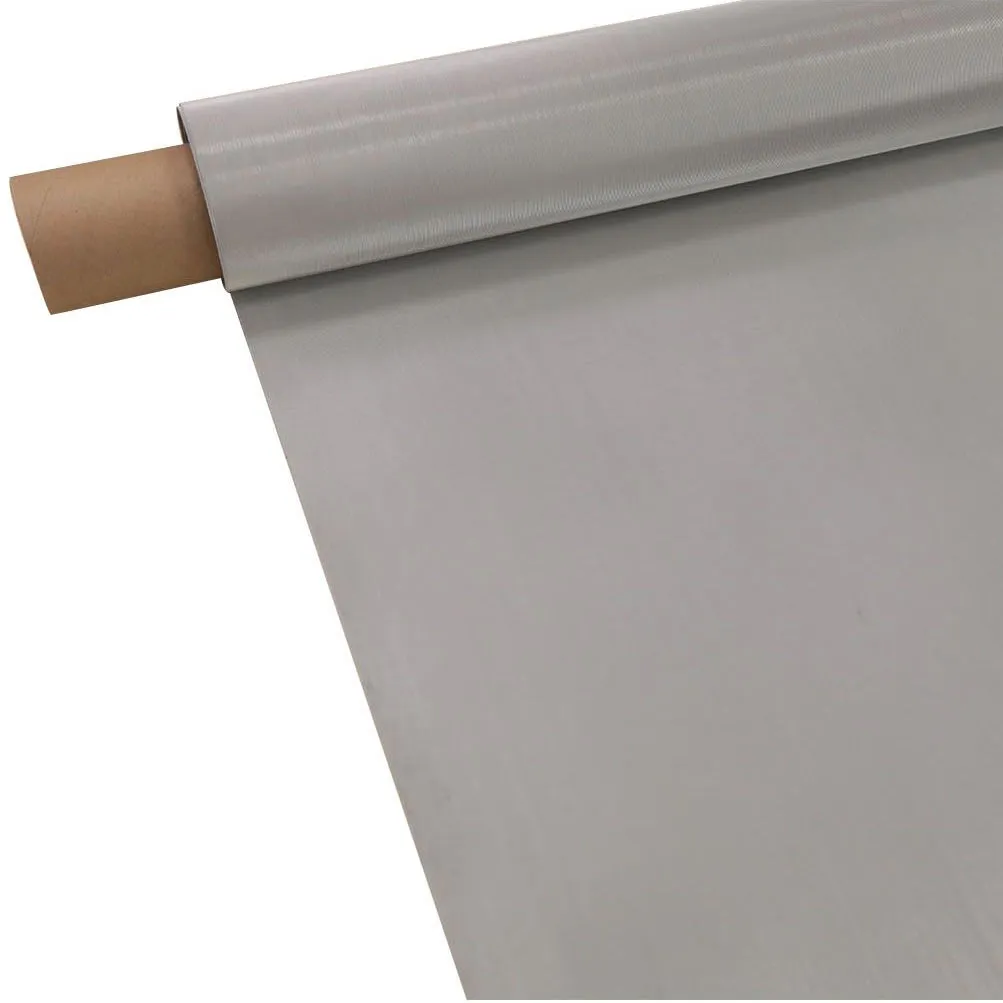
Frequently Asked Questions (FAQ) about Twill Weave Mesh
Q1: What is the primary difference between twill weave mesh and plain weave mesh?
A1: In plain weave, each warp wire crosses alternately over and under each weft wire, creating a simple, square opening. In twill weave mesh, each warp wire passes over two weft wires and then under two weft wires (or vice-versa), creating a diagonal pattern. This allows for the use of heavier wires relative to the mesh count, resulting in a denser, stronger fabric with finer filtration capabilities and generally higher pressure resistance.
Q2: What materials are commonly used for twill weave mesh, and which is best for corrosive environments?
A2: The most common material is Stainless Steel (SS304, SS316, SS316L). For highly corrosive environments, SS316L is generally recommended due to its enhanced resistance to pitting and crevice corrosion, attributed to its lower carbon content and higher molybdenum percentage. For extremely aggressive conditions, specialized alloys like Monel, Hastelloy, or Inconel can be specified.
Q3: How is the aperture size of twill weave mesh determined?
A3: The aperture size (or micron rating) is determined by the mesh count (wires per inch) and the wire diameter. For twill weave mesh, the complex interlacing allows for very fine apertures even with relatively robust wires. We use precision optical and digital measurement tools to ensure the exact aperture size specified by our clients.
Q4: Can twill weave mesh be customized for specific applications?
A4: Absolutely. We specialize in customized solutions for twill weave wire mesh. This includes variations in material, mesh count, wire diameter, overall dimensions (rolls, sheets, cut-to-size), and fabrication into specific filter elements like discs, cylinders, or cones. Our engineering team works directly with clients to design products that precisely meet their unique filtration and mechanical requirements.
Logistics and Support: Lead Time, Warranty, and After-Sales Service
Beyond product quality, the efficiency of logistics and the reliability of after-sales support are paramount in building enduring B2B relationships. We are committed to providing a seamless experience from inquiry to post-installation support for all our twill weave mesh products.
Lead Time and Fulfillment
Our streamlined manufacturing processes and efficient supply chain management enable us to offer competitive lead times. For standard twill weave mesh specifications and common materials, typical lead times range from 2 to 4 weeks, depending on order volume. For highly customized solutions or specialized alloys, lead times may extend to 4 to 8 weeks, with specific timelines provided at the quotation stage. We work diligently to meet project deadlines and offer expedited production options when feasible to accommodate urgent requirements. All shipments are meticulously packaged to prevent damage during transit and dispatched via reliable logistics partners, ensuring timely and safe delivery globally.
Warranty Commitments
We stand behind the quality and performance of our Stainless Steel Twill Weave Wire Mesh products. All products are covered by a comprehensive 1-year limited warranty against manufacturing defects and material failures under normal operating conditions. This warranty reflects our confidence in our stringent quality control processes and the durability of our materials. Should any defect arise that is attributable to our manufacturing, we commit to prompt replacement or repair, ensuring minimal disruption to your operations.
Customer Support and After-Sales Service
Our commitment extends well beyond the point of sale. We provide dedicated customer support to assist with any technical inquiries, installation guidance, or troubleshooting. Our team of experienced engineers and sales professionals is readily available via phone, email, or online portal to provide expert advice and prompt resolutions. We offer:
- Technical Consultation: Assistance with product selection, application optimization, and material compatibility.
- Installation Support: Guidance on best practices for integrating twill mesh into your existing systems.
- Troubleshooting: Rapid response and solutions for any performance-related issues.
- Feedback Mechanism: A structured process for collecting customer feedback to continuously improve our products and services.
Our goal is to foster long-term partnerships by ensuring that every client receives not only superior twill mesh products but also unparalleled service and support throughout the product lifecycle.
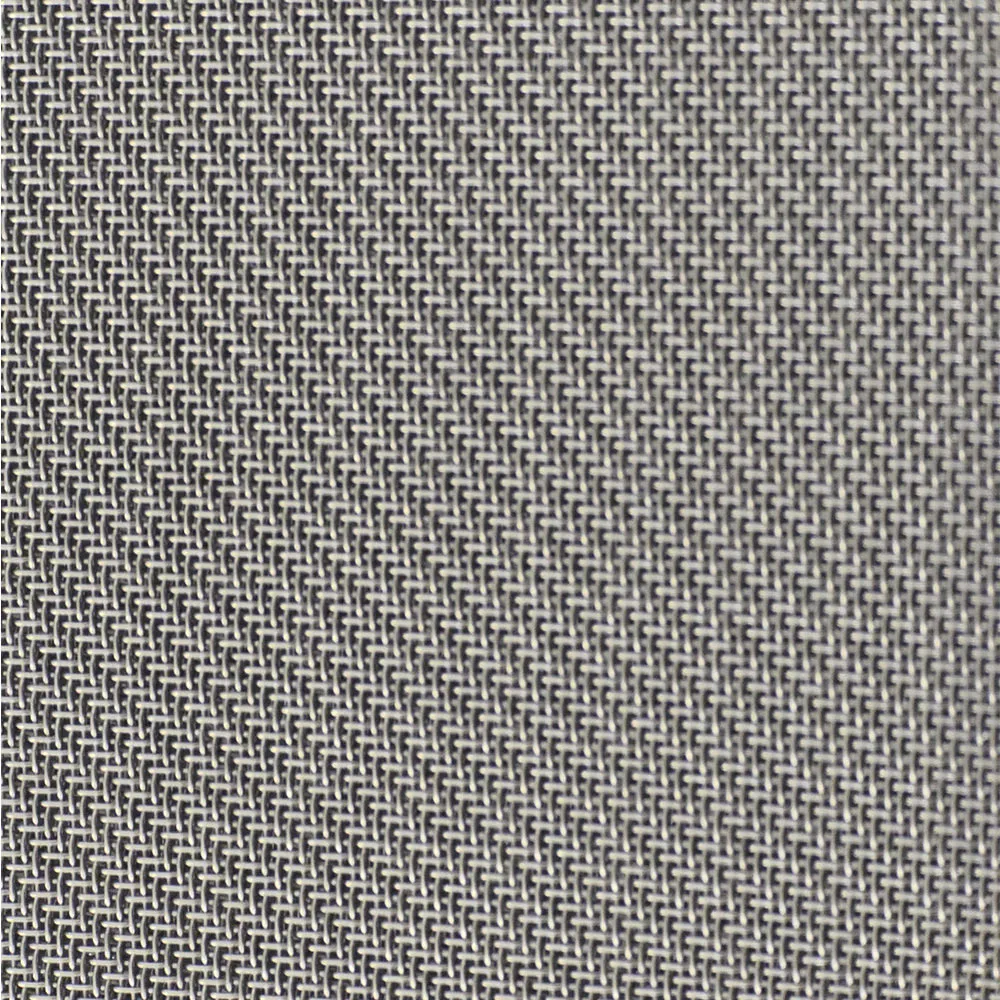
References
- ASTM International. ASTM E2016-11, Standard Specification for Industrial Woven Wire Cloth.
- ISO (International Organization for Standardization). ISO 9001:2015, Quality management systems – Requirements.
- The Fabricator. "Understanding Wire Mesh Weave Types for Filtration."
- National Academies of Sciences, Engineering, and Medicine. "Materials Science and Engineering for the 21st Century."
- Stainless Steel World. "Corrosion Resistance of Stainless Steels."
Post time: Aug . 26, 2025 07:00
